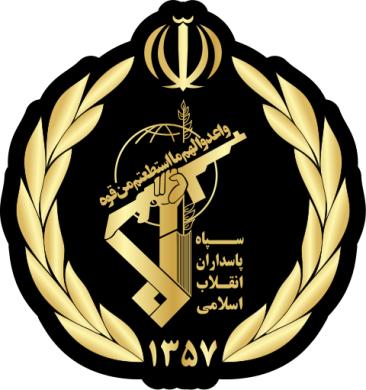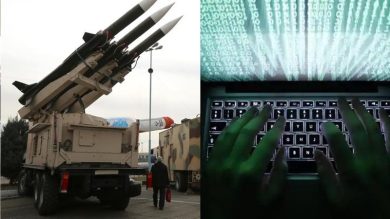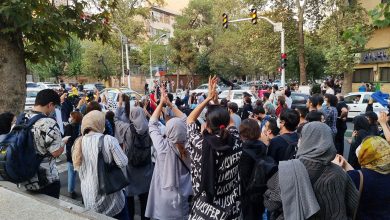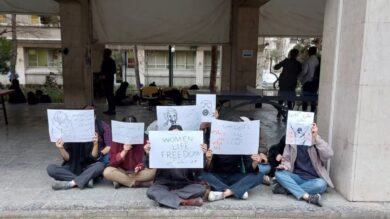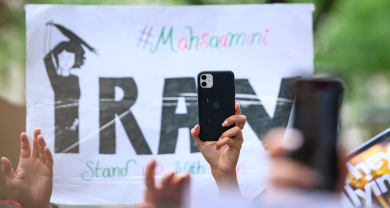The Islamic Revolutionary Guard Corps (IRGC) has systematically built an extensive network of proxy militias and terror groups, solidifying Iran’s influence across the Middle East. By funding, training, and arming non-state actors, the IRGC avoids direct military confrontation while extending its reach into countries like Lebanon, Syria, Iraq, Yemen, and Palestine. These groups act as Iran’s enforcers, destabilizing governments, launching attacks on rivals, and undermining regional security. This report examines how the IRGC’s proxy wars and terror networks fuel instability, sectarian violence, and international security threats—and why urgent global action is needed to counter Iran’s growing influence.
1. Understanding the IRGC’s Proxy Warfare Strategy
The IRGC’s Quds Force, its foreign operations unit, plays a critical role in establishing and maintaining proxy forces. The IRGC uses these groups to:
• Expand Iran’s regional power without engaging in direct conflict.
• Undermine U.S., Israeli, and Gulf Arab influence in the Middle East.
• Destabilize Sunni-majority governments that oppose Iran’s policies.
• Control strategic territories, including vital trade routes and oil reserves.
A. Why the IRGC Uses Proxies Instead of Direct Military Action
1. Avoids direct war – Allows Iran to wage conflicts while denying involvement.
2. Minimizes international backlash – Proxy groups act as intermediaries, shielding Iran from immediate consequences.
3. Creates long-term instability – Weakening rival governments ensures Iran remains the dominant power in the region.
2. Key IRGC-Backed Proxy Groups and Their Regional Impact
The IRGC has armed and financed terrorist organizations and militias in multiple countries, turning them into extensions of its military influence.
A. Hezbollah (Lebanon)
• Founded: 1982 by the IRGC to fight Israel and establish an Iranian-aligned regime in Lebanon.
• Funding & Training: Receives up to $700 million annually from Iran.
• Terrorist Activities:
• Conducted the 1994 AMIA bombing in Argentina, killing 85 people.
• Involved in the 2012 bus bombing in Bulgaria, killing Israeli tourists.
• Launched rocket attacks on Israel, escalating tensions in the region.
• Political Control:
• Controls large parts of Lebanon’s government and military.
• Blocks international efforts to disarm militias in Lebanon.
B. Houthis (Yemen)
• Founded: Iran began supporting the Houthis in the 2000s.
• Weapons & Strategy:
• Iran supplies ballistic missiles, drones, and explosives.
• Conducts attacks on Saudi Arabia and the UAE, targeting civilians and oil facilities.
• Impact on Yemen:
• Prolonged the civil war, causing one of the worst humanitarian crises globally.
• Blocks peace efforts, ensuring continued instability.
C. Kata’ib Hezbollah & Other Iraqi Militias
• Founded: Emerged in the mid-2000s to fight U.S. forces in Iraq.
• Iran’s Role:
• Supplies funding, weapons, and training.
• Encourages attacks on U.S. bases and coalition forces.
• Terrorist Attacks:
• Launched drone strikes on U.S. personnel in Iraq and Syria.
• Assassinated Iraqi protesters, journalists, and opposition leaders.
D. Palestinian Terror Groups (Hamas & Islamic Jihad)
• Founded: Iran has funded Hamas and Palestinian Islamic Jihad (PIJ) for decades.
• Weapons & Training:
• Provides rockets, drones, and military expertise.
• Smuggles weapons into Gaza via Hezbollah and Syria.
• Terrorist Activities:
• Launches rocket attacks on Israeli cities.
• Organizes suicide bombings and kidnappings.
E. IRGC Forces in Syria
• Mission: To support Bashar al-Assad’s regime and maintain Iranian dominance in Syria.
• Impact on the War:
• Iran’s involvement prolonged Syria’s civil war, leading to mass displacement and war crimes.
• Built military bases in Syria, allowing it to launch attacks on Israel.
3. The Global Impact of IRGC Proxy Wars
A. Destabilization of Governments
• IRGC-backed groups have hijacked democratic movements and weakened governments in Lebanon, Iraq, and Yemen.
• These militias operate outside state control, challenging national armies.
B. Humanitarian Crises
• Iran’s proxies fuel civil wars, causing mass displacement, starvation, and suffering.
• Millions of people in Yemen, Syria, and Lebanon rely on humanitarian aid due to IRGC-driven conflicts.
C. Increased Threats to U.S. and Allied Forces
• Iranian-backed militias have killed U.S. soldiers and targeted diplomatic facilities.
• American and European officials have been targeted for assassination attempts linked to the IRGC.
D. Iran’s Growing Threat to International Trade and Energy Security
• The IRGC’s control over militias in the Persian Gulf threatens oil shipping routes.
• Attacks on Saudi and UAE oil infrastructure impact global energy markets.
4. Why the World Must Act Against the IRGC’s Proxy Networks
A. Designate the IRGC as a Terrorist Organization Globally
• The U.S. has already designated the IRGC as an FTO, but the EU, UK, and Canada must follow.
• Full designation would block IRGC funding, restricting its ability to support proxies.
B. Sanction IRGC-Linked Companies and Financial Networks
• Iran funds its proxies through oil smuggling, drug trafficking, and front companies.
• Expanding sanctions on these networks would limit Iran’s ability to finance terrorism.
C. Support Anti-IRGC Activists in the Region
• Providing humanitarian aid, technology, and security assistance to activists and independent media can expose IRGC influence.
• Supporting democratic movements in Iraq, Lebanon, and Syria weakens IRGC-backed militias.
D. Strengthen Military and Intelligence Cooperation
• The U.S., Israel, and Gulf allies must increase intelligence-sharing on IRGC operations.
• More defensive measures should be in place to counter Iranian drone and missile attacks.
Conclusion: The Urgent Need to Counter the IRGC
The IRGC’s proxy wars and terror networks are the greatest threat to stability in the Middle East. These groups have toppled governments, fueled civil wars, and launched terrorist attacks worldwide. Without stronger global action, the IRGC will continue expanding its influence, destabilizing the region, and threatening international security.
Join Our Newsletter!
Stay informed with the latest updates, news, and ways to take action in the fight for justice and global security. Sign up now to get updates delivered straight to your inbox!

